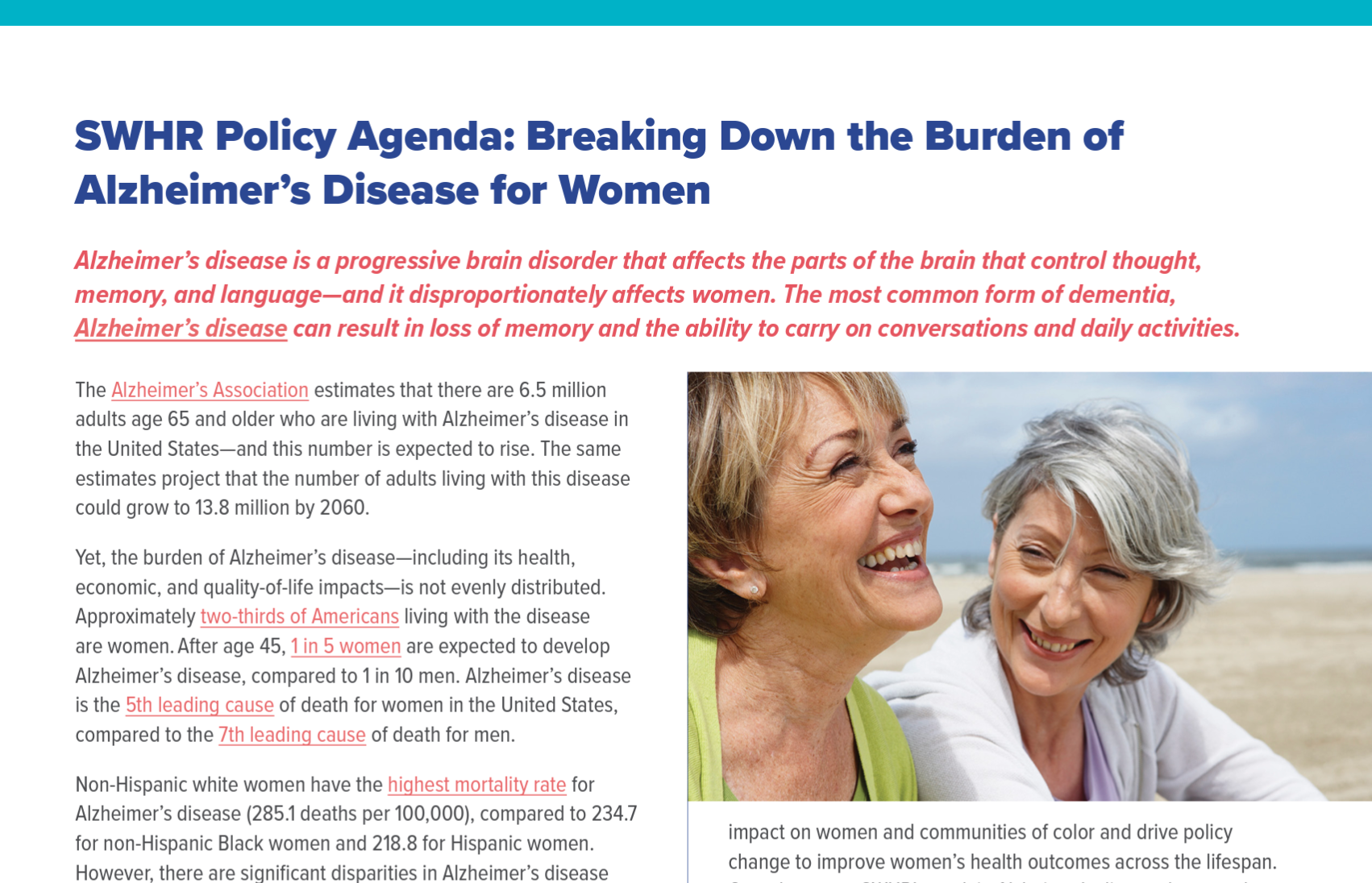Caregivers play a pivotal role in the U.S. health care system and in the nation’s long-term care ecosystem. Yet, they are not always recognized for their contributions.
According to the Alzheimer’s Association’s “2022 Alzheimer’s Disease Facts and Figures” report, “More than 11 million family members and other unpaid caregivers provide an estimated 16 billion hours of care to people with Alzheimer’s or other dementias in 2021.” The majority of these caregivers are women, who face unique challenges when it comes to serving in a caregiver capacity.
Work-Life Balance
Women tend to bear the brunt of emotional labor and caregiving, both at home and in their chosen career. In addition to their regular work responsibilities, dementia caregivers provide care for an average of 28 hours per week, the equivalent of a part-time job. Further, McKinsey’s 2022 Women in the Workplace report, revealed that women “do more to support employee well-being and foster [diversity, equity, and inclusion (DEI)]—work that dramatically improves retention and employee satisfaction but is not formally rewarded in most companies.” This stretches women in leadership thinner than their male counterparts; the study showed that 43 percent of women leaders are burned out, compared with 31 percent of men at their level. For many, balancing work and caregiving responsibilities among informal caregivers was exacerbated during the COVID-19 crisis.
Impacts on Physical, Emotional, and Mental Health
Caregiving, while rewarding and fulfilling, can also present challenges for caregivers to take care of themselves. The U.S. Centers for Disease Control and Prevention (CDC) notes that “Family caregivers of people with Alzheimer’s and related dementias are at greater risk for anxiety, depression, and poorer quality of life than caregivers of people with other conditions.” In a 2022 congressional briefing and national webinar hosted by the Society for Women’s Health Research (SWHR), Fawn Cothran, PhD, RN, GCNS-BC, FGSA, Hunt Research Director at the National Alliance for Caregiving, also cited risks of feelings of invisibility, nutrition, immune function, and isolation.
According to a 2020 fact sheet from the Alzheimer’s Association, nearly 75 percent of Alzheimer’s disease and dementia caregivers are somewhat or very concerned about maintaining their health since becoming a caregiver; more than 1 in 3 caregivers say their health has gotten worse due to their caregiving responsibilities; and nearly 60 percent of Alzheimer’s disease and dementia caregivers rate the emotional stress of caregiving as “high” or “very high.” Research has indicated that women experience more caregiver strain compared to men.
Further, caregivers who are part of the “Sandwich Generation,” those who serve in a caregiver role for both a child and an older adult, are becoming increasingly younger, more female, and more diverse as a result of the COVID-19 pandemic.
Economic Challenges
A September 2022 article in the American Journal of Managed Care found that “the total lifetime cost of care for a patient with dementia is estimated at $412,936 in 2022 dollars, with 70% of those costs borne by the family caregivers in the form of unpaid caregiving and out-of-pocket expenses for items ranging from home health support to medications.” Research has shown that women bear six times the cost of Alzheimer’s disease care than men do.
Further, a 2019 report from the Milken Institute, summarized by AARP, found that “as the demands of later-stage dementia multiply, women more frequently miss work or quit their jobs, leading to lost wages and benefits amounting to hundreds of thousands of dollars, on average.”
Caregivers are vital members of someone’s care team, assisting with daily living (e.g., bathing), necessary activities (e.g., transportation, grocery shopping), care management, emotional support, and more. Recognizing and valuing this role at a federal level is critical.
As part of SWHR’s work to raise awareness about the needs of women impacted by Alzheimer’s disease—both as patients and caregivers—and drive policy change for those affected, the Society this Alzheimer’s Disease Awareness Month has launched, SWHR Policy Agenda: Breaking Down the Burden of Alzheimer’s Disease for Women. The policy agenda is intended to serve as a roadmap, highlighting key areas of federal policy need spanning education and awareness, research, and health care access in order to improve health and quality of life outcomes for women impacted by Alzheimer’s disease.
Read the policy agenda online here.
For more Alzheimer’s resources from SWHR, visit the following:
- Taking Heed of Alzheimer’s Disease: Recognizing and Responding to a Coming Crisis | Congressional Briefing and National Webinar
- Breaking Down the Burden of Alzheimer’s Disease for Women: A Call to Action | Fact Sheet
- SWHR Women’s Health Equity Initiative | Alzheimer’s Disease Fact Sheet and Testimonial
